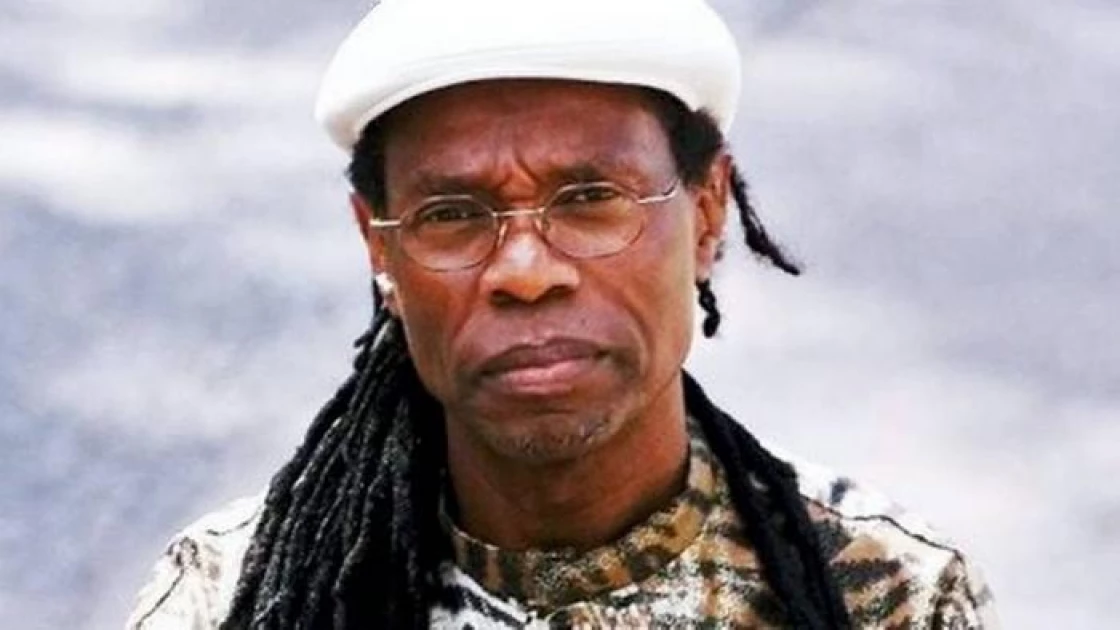Field Marshall Muthoni Wa Kirima: The significance and politics behind former freedom fighters shaving their dreadlocks, according to Koigi wa Wamwere

Former Nakuru North MP Koigi wa Wamwere back in the day when he sported a head full of dreadlocks.

Audio By Vocalize
The videos showed former First Lady Mama Ngina Kenyatta with a pair of scissors chopping the mop of hair off Wa Kirima’s head.
So, what does shaving dreadlocks mean in the Agikuyu culture? The answers are numerous and varied, ranging from signalling peace treaties to indicating the end of an era and the beginning of a new one.
Maybe the best person to ask would be a person who has been there, done that. In the literal sense.
We spoke with Koigi wa Wamwere, a former Member of Parliament from Nakuru North, now Subukia, to get a sense of context and, most likely, the significance or meaning behind the "big chop."
With a mop of 13-year-old dreadlocks that he kept while serving time for treason, the former MP rose to prominence during the Kenyatta and Moi regimes, and was a symbol of Kenya's agitation for multi-party era, as well as an uprising against the government of the time.
According to Koigi, dreadlock cutting has no universal meaning, and most people cut theirs for different reasons.
Koigi started growing his hair by a fluke, shortly after he was thrown into jail alongside three others, having been accused of importing weapons, and recruiting youths to rise against the government.
“I never really wanted to keep my hair, but the prison authorities thought if we appeared before the judge, with unkempt hair, we’d possibly look like the terrorists we were being portrayed to be,” Koigi told Citizen Digital on Monday.
“They denied us combs, in the hope that we would increasingly start looking like the Mau Mau (who were known to keep dreadlocks) and therefore look like terrorists.”
In an unexpected turn of events, following their court appearances, their hair became a fad, and was quickly adopted by others outside of prison who were protesting the leadership at the time.
According to the former MP, the prison authorities later reconsidered the hair idea, informing the prisoners that they would now need to cut their hair.
Koigi would then go to court to protest the order to cut his now-famous locks, telling the judge that his hair, while long, was neat and clean.
Following his release from prison and eventual exile to Norway, he vowed to keep his dreadlocks and shave them only when President Moi left office.
His hair became a symbol of his opposition to President Moi, and he wore it for 13 years before cutting it off in 2003.
Koigi also discusses the spectacle of Muthoni wa Kirima chopping off her hair to signal that Kenya has now attained the long-desired 'Uhuru.'
He began by joking that, as a lover of locks, more Kenyans should grow dreadlocks rather than shave them. He believes that if the “reggae wave”, which is currently being fuelled by the Azimio La Umoja campaigns, wins on August 9, more people will grow dreadlocks.
According to Koigi, Kenya has yet to achieve democracy because, if the country was democratic, Wa Kirima, the country's only female field marshal, would not have needed to cut her hair.
Koigi believes that the dreadlocks, which symbolised the ongoing struggle against the ills that replaced colonialism, should have remained on Field Marshal Muthoni Wa Kirima's head as a reminder to Kenya's future generation of the long, arduous struggle for liberation.
“You know, Muthoni wa Kirima was a very high-ranking Field Marshal, if we were democratic, no one would be asking her to cut her hair, we would be asking her to keep them as something for the youth, as symbol of the struggle for freedom,” Koigi added.
“I know why it would make some people uncomfortable, because she represents what the Mau Mau fought against, ills such as poverty”
Several follow-up videos have now been shared online, with Wa Kirima explaining her 'big chop.' Wa Kirima says in the videos that she wants to give her hair a new lease on life because she hasn't cut it since 1952.
She also denied claims that he was forced to cut her hair, revealing that she was the one who asked the Kenyatta family matriarch Mama Ngina to cut the dreadlocks to signal that Kenya had finally attained "Uhuru."


Leave a Comment